The chef known for championing Singapore’s heritage cuisine reflects on festive memories, multigenerational recipes, and the enduring spirit of Eurasian cooking at his new Gilmore & Damian D’Silva.
TEXT BY DERRICK TAN | PHOTOS BY MARCUS LIM
Damian D’Silva, chef-owner of the new Gilmore & Damian D’Silva at the National Gallery Singapore, takes us down memory lane with a dual version of the representative Eurasian Christmas dish, curry debal (or devil’s curry), symbolising resourcefulness and bonds those with euro-Asian heritage.
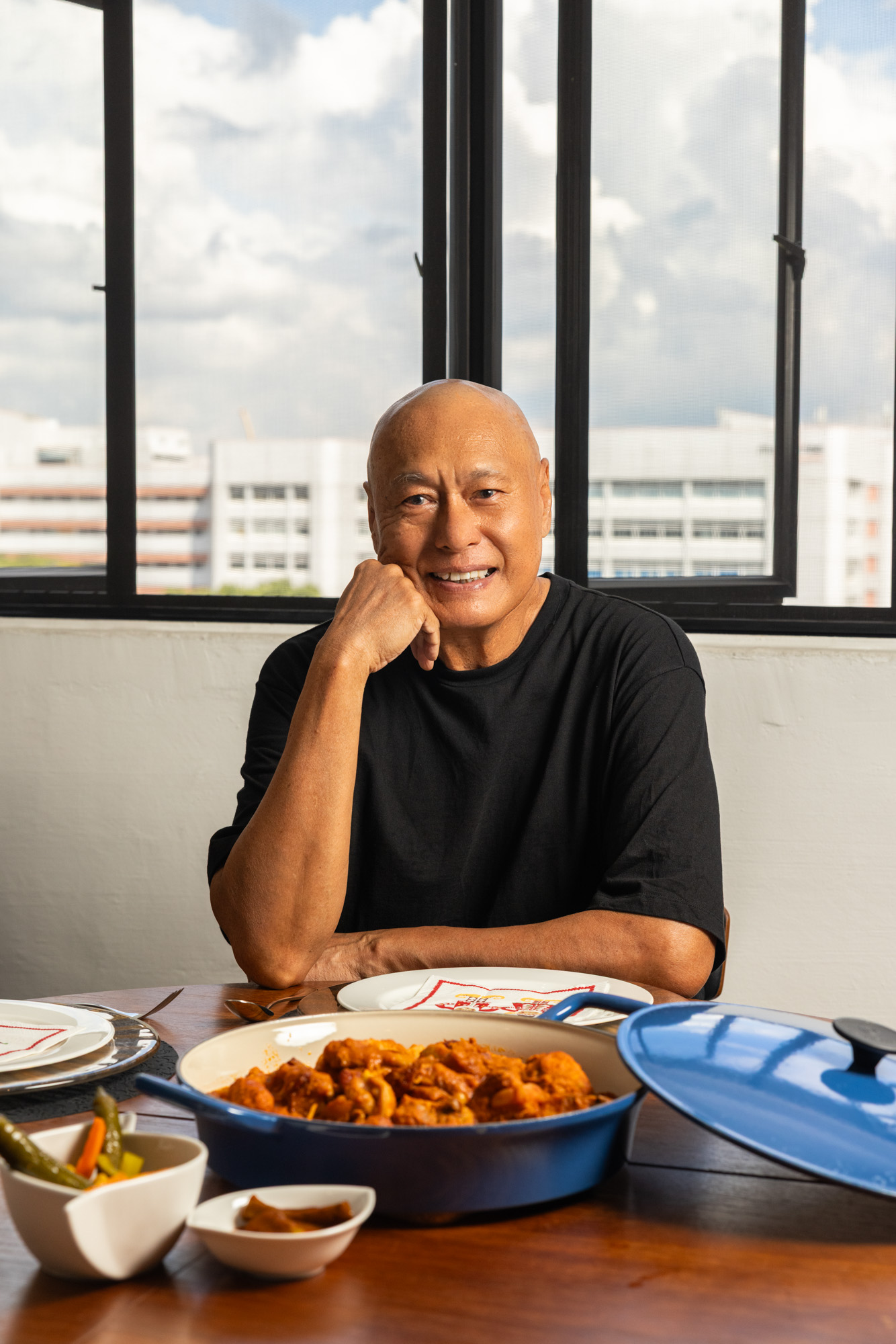
“Our family has two versions [of curry debal]: a white and a red,” Damian reveals. “The white is usually cooked with achar and chicken. The red is more complex and contains ham, roast meats, and everything else left over after Christmas. The base is simple – onions, shallots, ginger, and chillies, with plenty of vinegar.”
This iconic classic curry got its fiendish name due to its spicy and tangy profile derived from spices and vinegar. “[Curry] debal was always served at Christmas, and especially after the festivities, when all the leftovers were cooked together in a pot. This [pictured] is my favourite version, as the flavours developed and became more intense with each passing day. It’s hard to forget the addictiveness once you’ve tried it,” he shares.
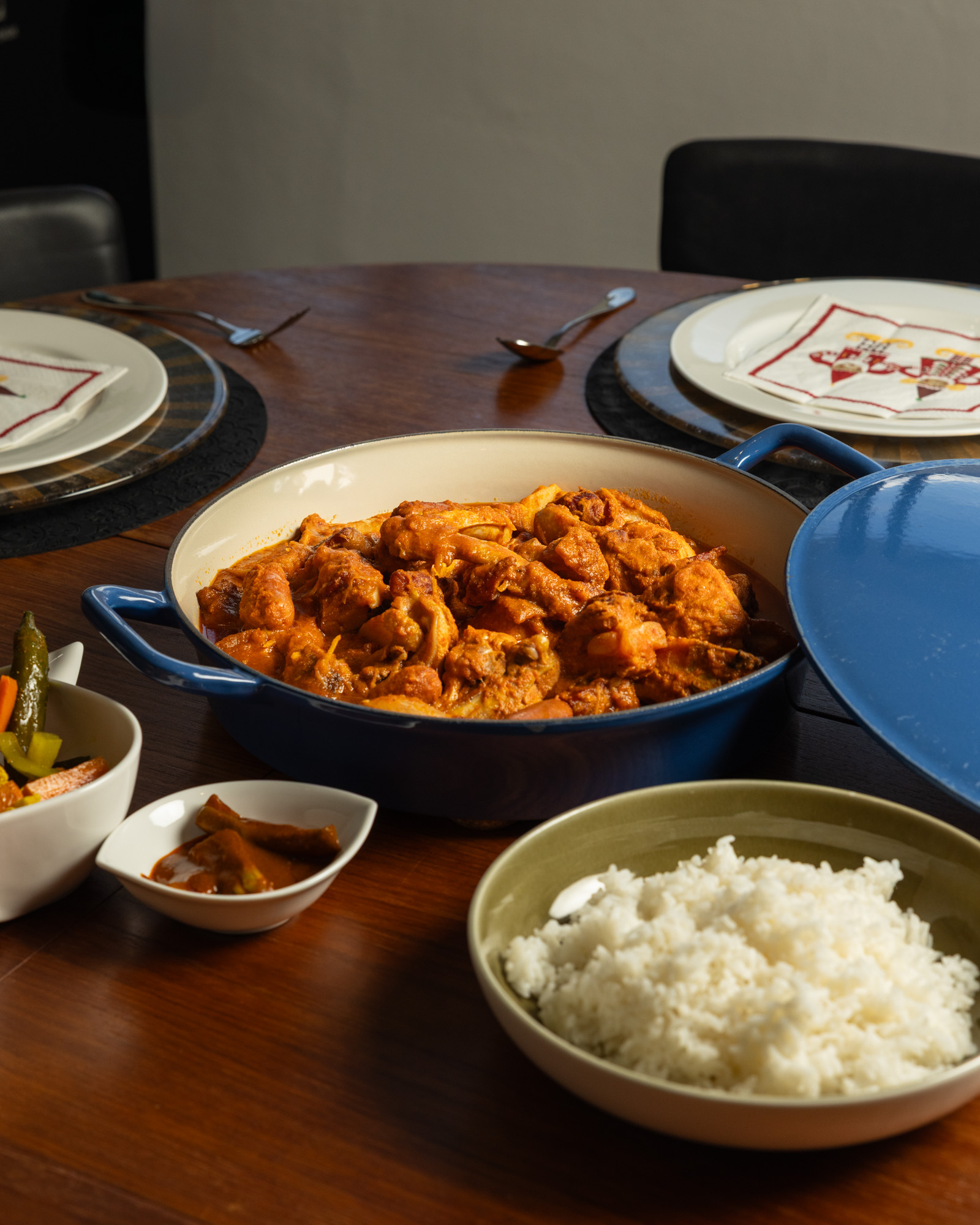
Damian coins himself “The Rebel Chef” on social media. As one of Singapore’s culinary pioneers who advocates Singaporean heritage cuisine, the 68-year-old also holds another role as the gatekeeper of traditional Eurasian and Peranakan gastronomy. The latter two cultures are deeply rooted in his DNA, with a Eurasian grandfather and a Peranakan grandmother.
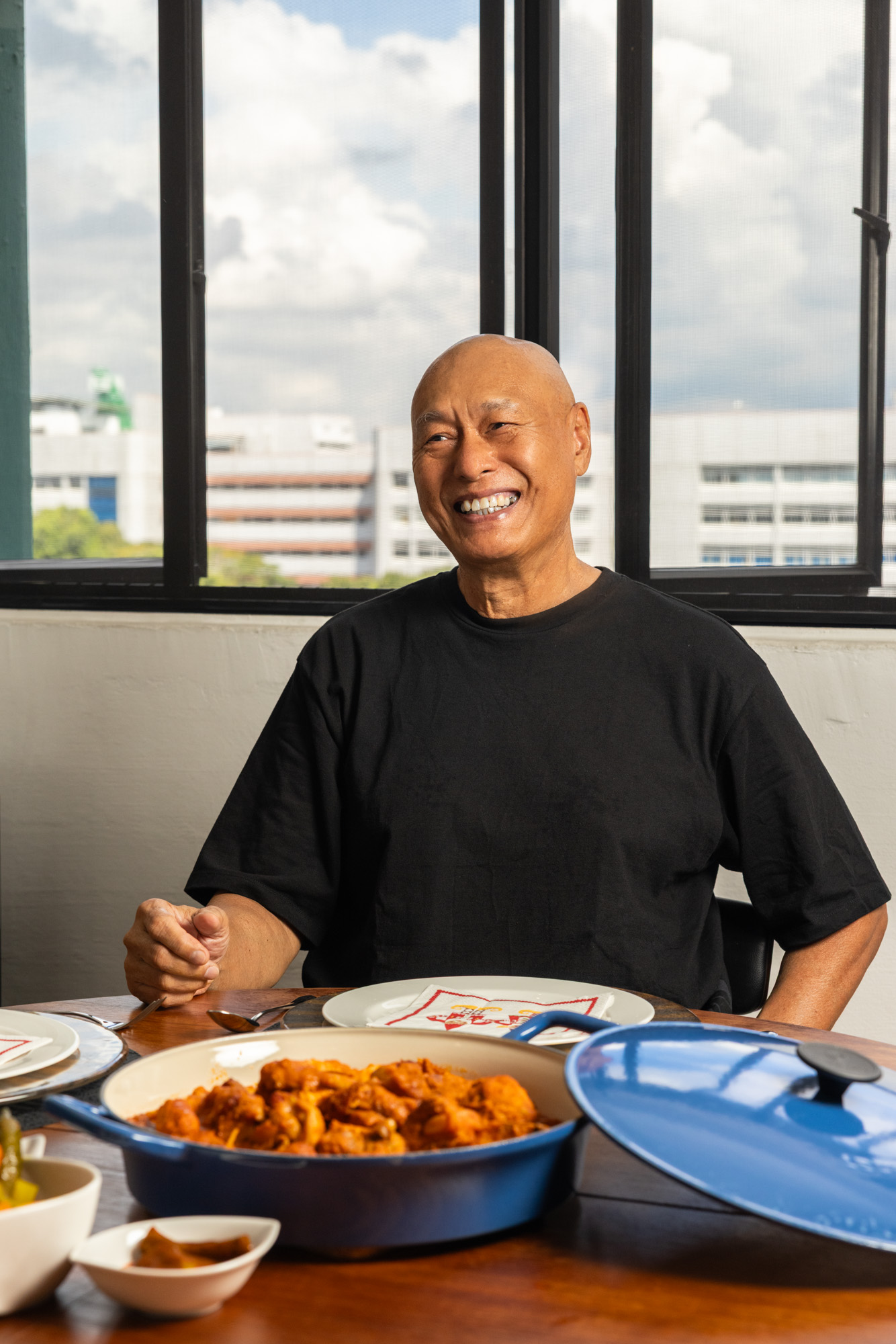
“Christmas with grandad was different throughout my youth. As a boy, it was more instinctive to help in the kitchen with the family. It could be simple tasks like ‘pinching’ the pastry of the tarts before baking. Worse was beating the cake mixtures with a hand whisk for hours,” he recalls.
“As I grew into adolescence, Christmas had a different appeal. Yes, there were still the same routines, like stirring dodol or frying the sasagoon (a Peranakan treat of grated coconut and rice flour cooked until caramelised) for two hours each. However, it seemed that on the days leading up to Christmas, the kitchen never stopped. There was always someone stirring something or baking cakes.” On such nights, he would fall asleep to the comforting scent of Christmas delights in the air and wake up with an eager, hungry feeling, knowing a feast awaited.
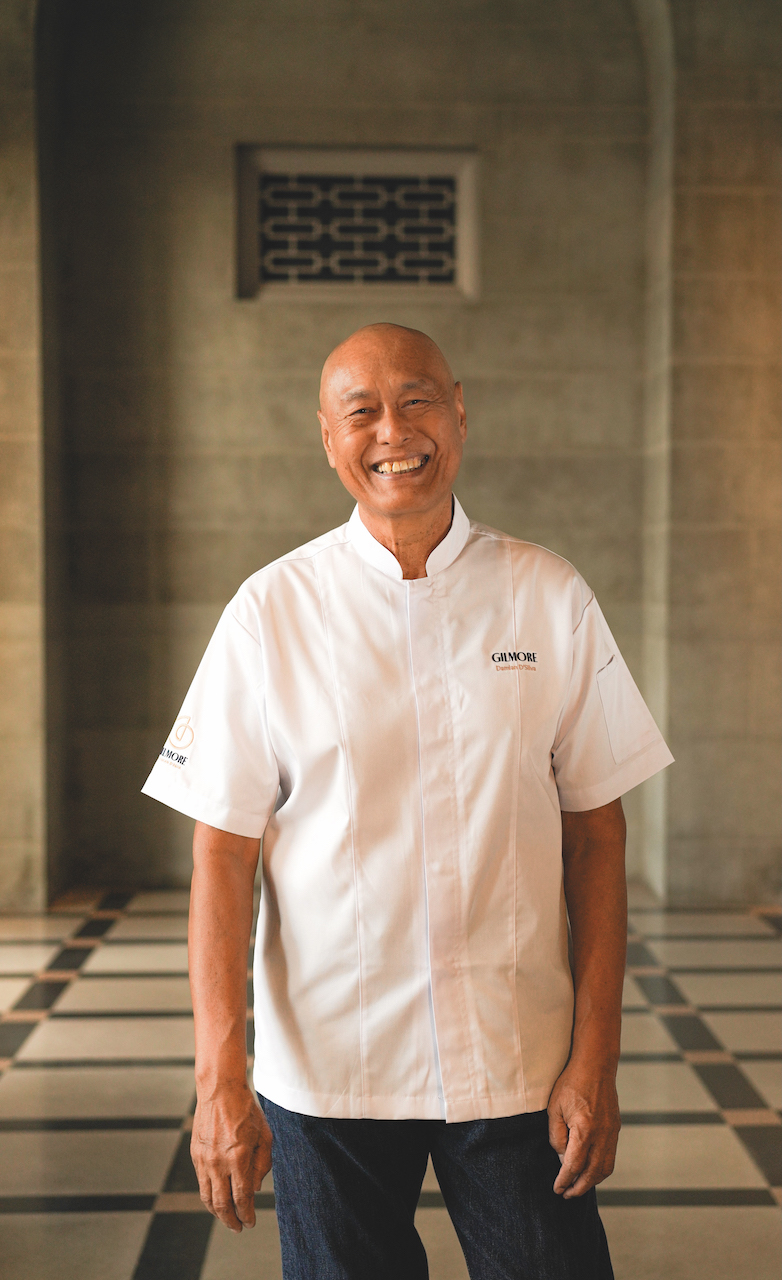
At Christmas, Damian’s dining table is laden with an impressive spread of at least 15 dishes from different ethnicities, though most are unmistakably Eurasian. They include favourites like roast beef, shepherd’s pie, and Christmas pie.
True to his name and reputation, Damian will never change any of his family’s recipes. “It would be sacrilegious to alter a dish that has given so much joy and memory to every family member who has consumed it.”
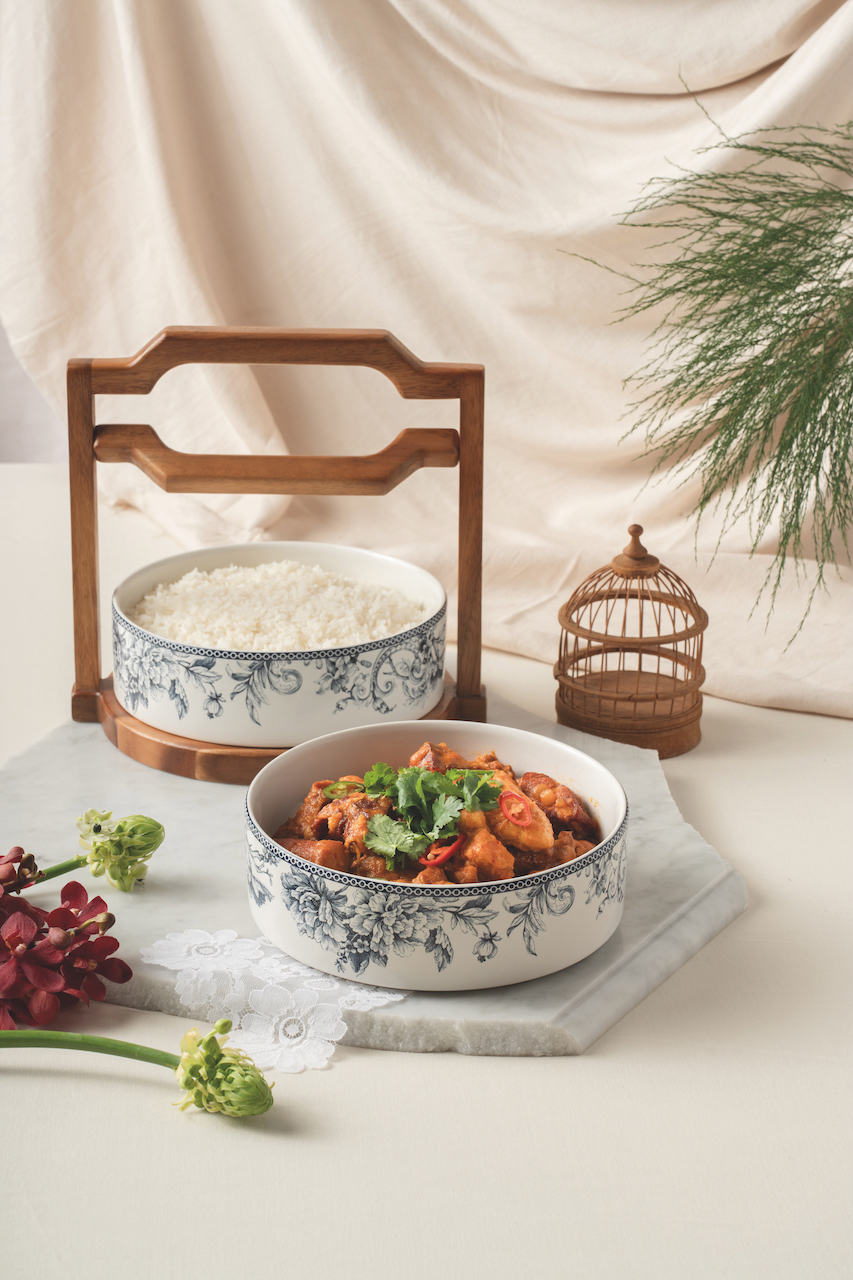
In November 2025, Damian launches Gilmore & Damian D’Silva, a premium casual restaurant, located in the former Supreme Court wing. Gilmore D’Silva was the first and only custodian of the Supreme Court. For 21 years, he guarded the keys, lived in the institution’s quarters, and at times cooked for the judges. The menu, inspired by Damian’s grandfather, features predominantly heirloom Eurasian recipes – some dating back more than 200 years. The “forgotten ones” have not appeared in any of the chef’s former restaurants. The rest of the dishes draw inspiration from his grandfather’s home-cooked Chinese fare.
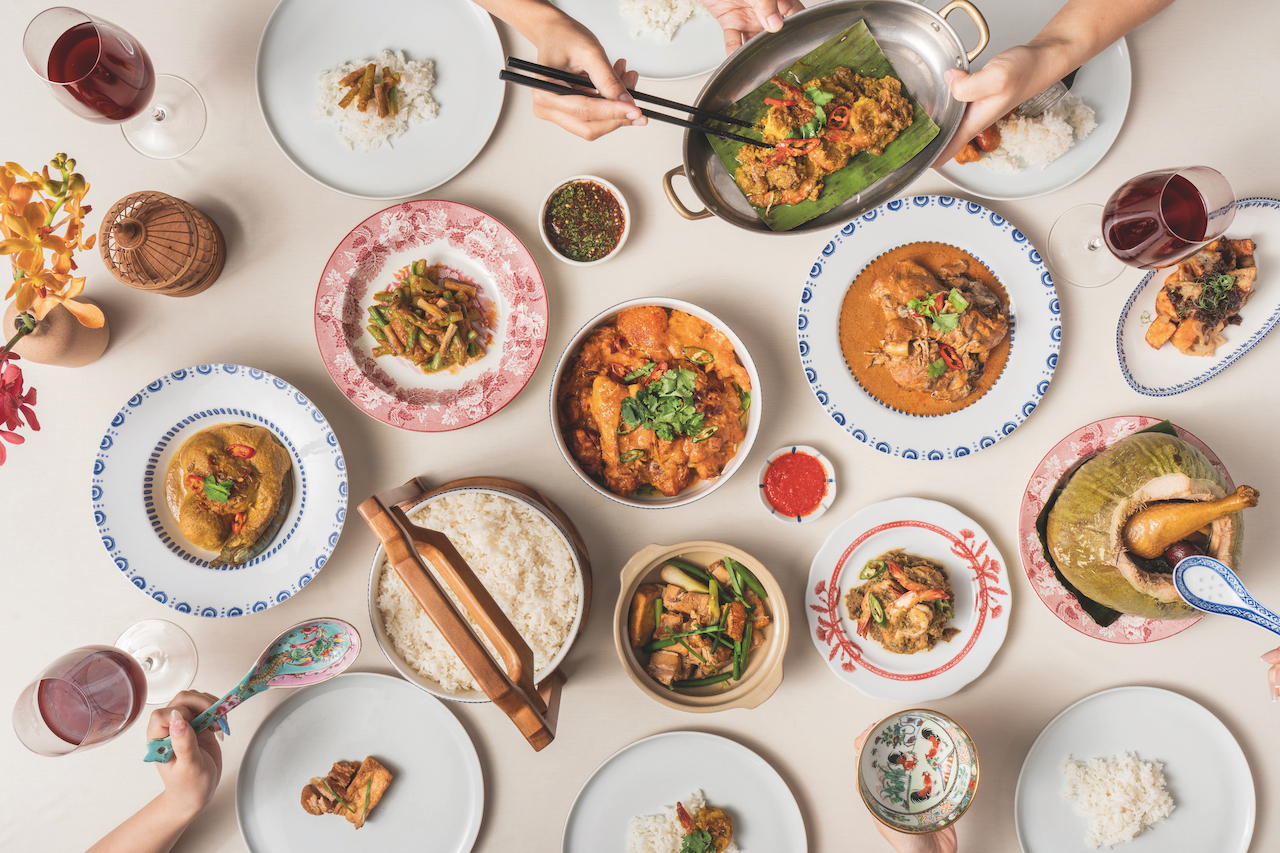
“[The restaurant] is probably the embodiment of what I do and what I have become from a cultural and culinary standpoint. It not only pays homage to the man who showed me how to embrace different cultures, but more importantly, it showcases Eurasian cuisine, never before seen in this expanse. So, instead of your normal debal, we will execute a Christmas debal and plenty of seafood dishes, as this was the more common choice of protein in the past,” shares the chef.
With both paternal grandfather and maternal grandmother being passionate cooks, Damian learned from the former that every dish has a soul, and that “Christmas is not only about eating, but also about the importance of partaking in the spirit of Christmas”.
